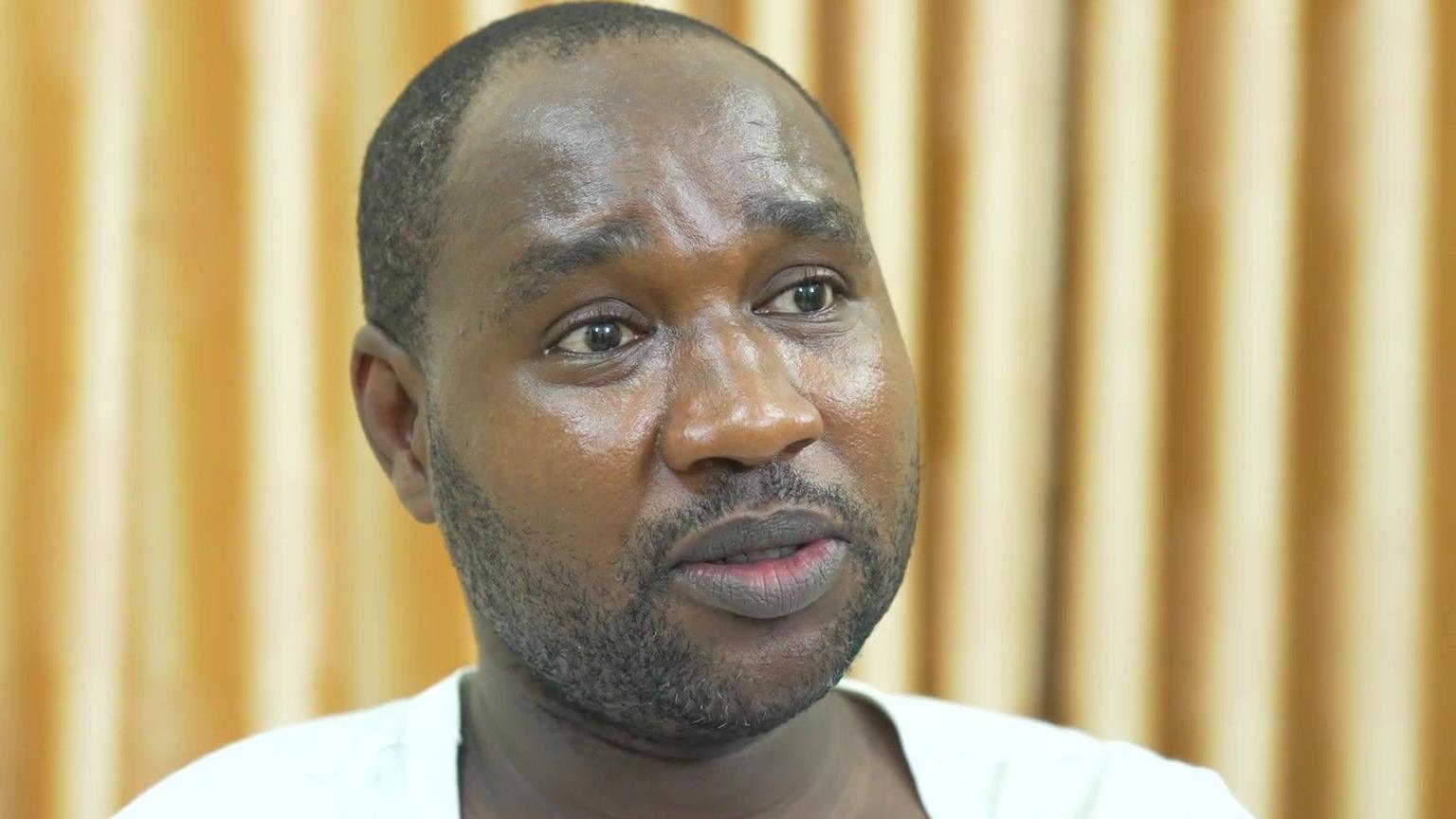Nigerian atheist freed from prison but fears for his life

- Published
A prominent Nigerian atheist, who has just been freed after serving more than four years in prison for blasphemy, is now living in a safe house as his legal team fear his life may be in danger.
Mubarak Bala, 40, was convicted in a court in the northern city of Kano after, in a surprise move, he pleaded guilty to 18 charges relating to a controversial Facebook post shared in 2020.
"The concern about my safety is always there," he told the BBC in an exclusive interview as he tucked into his first meal as a free man.
Nigeria is a deeply religious society and those who may be seen as having insulted a religion - whether Islam or Christianity – face being shunned and discriminated against.
Blasphemy is an offence under Islamic law – Sharia - which operates alongside secular law in 12 states in the north. It is also an offence under Nigeria's criminal law.
Bala, who renounced Islam in 2014, said there were times during his incarceration that he felt he "may not get out alive". He feared he could have been targeted by guards or fellow inmates in the first prison he was in, in Kano, which is a mainly Muslim city.
"Freedom is here, but also there is an underlying threat I now have to face," he said. "All those years, those threats, maybe they're out there."
He could have been inside for much longer if it was not for an appeals court judge who reduced the initial 24-year sentence last year, describing it as "excessive".
Walking out of the prison in the capital, Abuja, Bala looked tired, but cheerful dressed in a white T-shirt, khaki shorts and flip-flops. He emerged with his beaming lawyer by his side.
"Everything is new to me. Everything is new," he said as he took in his new-found liberty.
Bala, an outspoken religious critic, was arrested after a group of lawyers filed a complaint with the police about the social media post.
He then spent two years in prison awaiting trial before being convicted in 2022.
At the time Bala's guilty plea baffled many, even his legal team, but he stands by his decision, saying that it relieved the pressure on those who stood by him, including his lawyers, friends and family.
"I believe what I did saved not only my life, but people in Kano," he said.
"Especially those that were attached to my case, because they are also a target."
His conviction was widely condemned by international rights groups and sparked a debate about freedom of speech in Nigeria.
His detention also sent shockwaves across Nigeria's small atheist and humanist communities, and his release has come as a relief to many, but there are still concerns.
"It's thanks and no thanks," said Leo Igwe, the founder of the Humanist Association of Nigeria.
"Thanks, that he's out, thanks that he's a free man. But no thanks, because there is a dent on him as if he committed a crime. For us at the Humanist Association, he committed no crime."
As for Bala, he is keen to catch up on lost time – including getting to know his young son who was just six weeks old when he was imprisoned. But he said he had no regrets.
"My activism, my posting on social media, I always knew the worst would happen, When I made the decision to come out, I knew I could be killed. I knew the dangers, and I still decided to do it."
More Nigeria stories from the BBC:

Go to BBCAfrica.com, external for more news from the African continent.
Follow us on Twitter @BBCAfrica, external, on Facebook at BBC Africa, external or on Instagram at bbcafrica, external